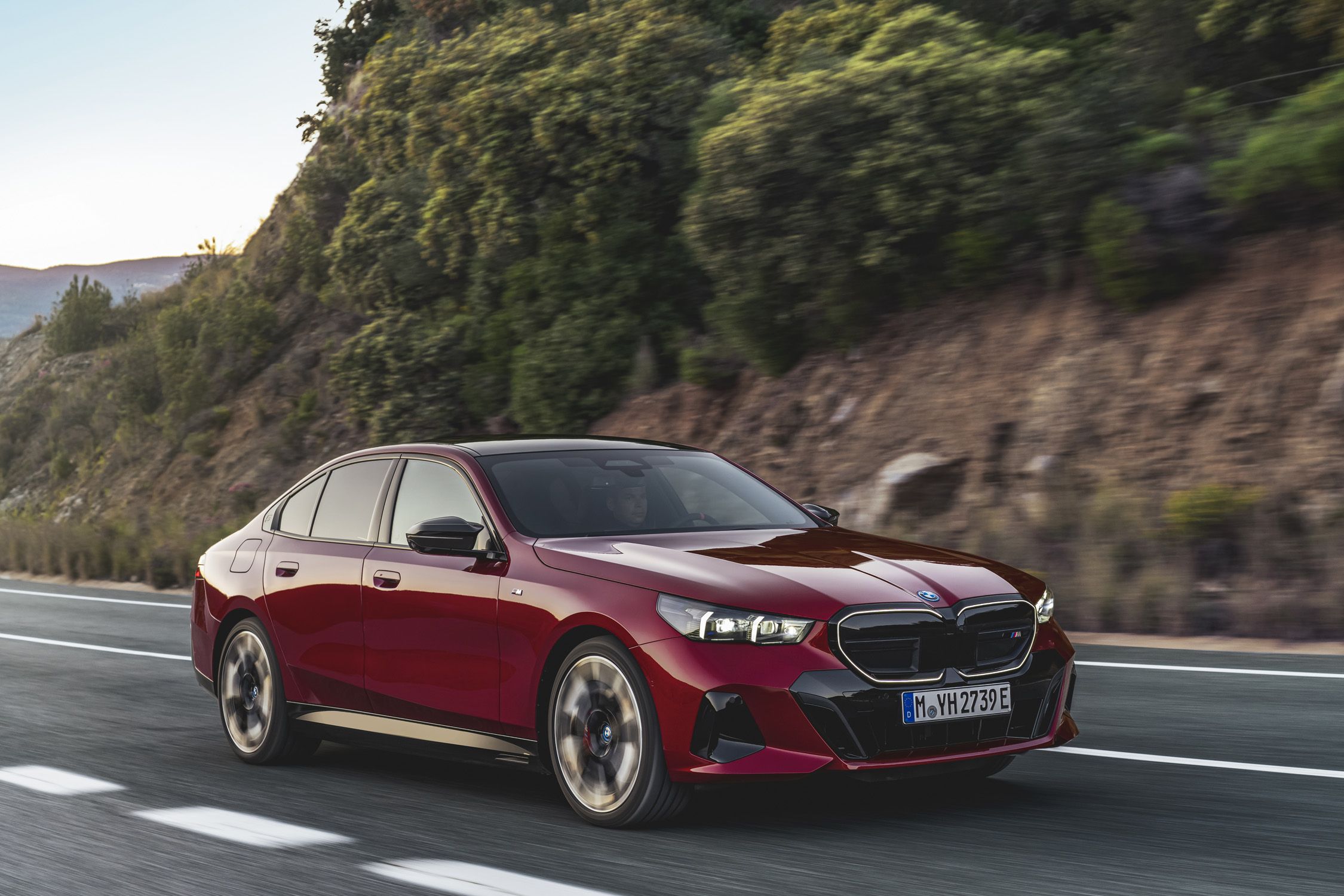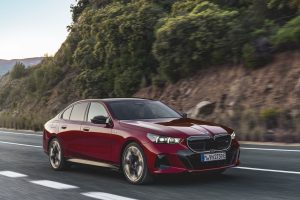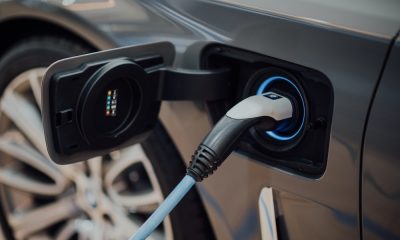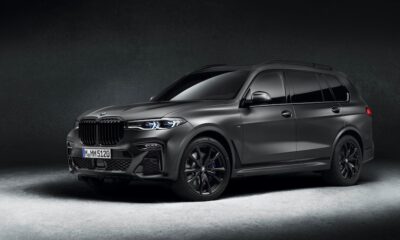Auto Pedia
Pioneering the Green Revolution: How BMW, Mercedes, and Toyota are Embracing Hybrid Cars

Introduction to Hybrid Cars
The world of automobiles is witnessing a paradigm shift, with hybrid cars leading the way. A remarkable fusion of electric and gasoline-powered technologies, these vehicles are not just a symbol of innovation but also a beacon of environmental sustainability. Their impressive fuel efficiency, reduced carbon emissions, and cutting-edge features have made them a sought-after choice among modern consumers.
The concept of hybrid cars isn’t entirely new. They have been around since the late 19th century. However, their true potential is only being realized in the 21st century as looming environmental crises and technological advancements have combined to drive the need for more sustainable transportation solutions. Today, hybrid cars are much more than an alternative; they represent the future of mobility.
As we embark on a deeper exploration of hybrid cars, it becomes crucial to understand their mechanics, their rise in popularity, and the role of leading automobile manufacturers in driving this green revolution. The likes of BMW, Mercedes, and Toyota are not just embracing hybrid cars; they are pioneering their evolution.
Understanding What is a Hybrid Car
Simply put, a hybrid car is one that utilizes more than one form of onboard energy to achieve propulsion. Typically, this means combining an internal combustion engine with one or more electric motors. Although this may sound complicated, the concept of hybrid cars is simpler than one might think.
The primary goal of a hybrid car is to conserve fuel and reduce emissions without compromising on performance or range – two significant drawbacks of fully electric vehicles. To achieve this, hybrid cars seamlessly switch between the electric motor and the gasoline engine, depending on driving conditions.
Hybrid cars come in different types, each with its unique way of balancing power between the gasoline engine and electric motor. These include parallel hybrids, series hybrids, and plug-in hybrids. Regardless of the type, the common thread running through all hybrid cars is their commitment to a greener, more sustainable future.
The Rise of Hybrid Cars in 2023
The year 2023 marked a significant milestone in the rise of hybrid cars. Propelled by increasing environmental concerns, advancements in technology, and supportive government policies, the demand for hybrid cars reached new heights.
One of the key drivers behind the rise of hybrid cars in 2023 is the growing awareness about climate change and the urgent need to reduce carbon emissions. Hybrid cars, with their impressive fuel efficiency and lower emissions, have emerged as an attractive solution for consumers looking to make a positive environmental impact.
The rise of hybrid cars in 2023 is also attributed to technological improvements. From longer battery life to more efficient energy management systems, hybrid cars have become more reliable and convenient. Additionally, with major auto manufacturers investing heavily in hybrid technologies, the variety and quality of hybrid cars available in the market have significantly improved.
BMW: Pioneering the Green Revolution
In the world of hybrid cars, BMW is more than just a participant; it’s a pioneer. With a vision to shape the future of mobility, the German automaker has been at the forefront of the green revolution, investing heavily in hybrid technologies and launching a series of impressive models.
BMW’s approach to hybrid cars is rooted in the belief that sustainability and performance can go hand in hand. Its hybrid models, known as BMW iPerformance, seamlessly merge the efficiency of an electric motor with the power of a combustion engine. This creates a driving experience that is both dynamic and environmentally friendly.
The BMW i3, for instance, is a testament to this philosophy. Lauded as one of the best hybrid cars of 2023, the i3 offers impressive fuel efficiency, all-electric driving capability, and a host of innovative features. This commitment to innovation and sustainability has placed BMW at the helm of the hybrid car revolution.
Mercedes: Embracing Hybrid Cars
Mercedes-Benz, another titan of the auto industry, has not been far behind in embracing hybrid cars. Recognizing the potential of hybrid technology, the brand has incorporated it across its product range, offering consumers a diverse selection of luxury hybrid vehicles.
Mercedes-Benz’s hybrid cars, branded as EQ Power, combine the brand’s hallmark luxury and performance with innovative hybrid technology. The goal is to offer a driving experience that is both exhilarating and sustainable.
The Mercedes-Benz C 350e, for instance, is a shining example of the brand’s commitment to hybrid cars. With a powerful engine, an electric motor, and an intelligently designed energy management system, the C 350e delivers top-notch performance while keeping emissions to a minimum. This blend of luxury, performance, and sustainability is what makes Mercedes a key player in the hybrid car market.
Toyota: Leading in Hybrid Car Technology
When it comes to hybrid cars, Toyota is undoubtedly a leader. The Japanese automaker introduced the world’s first mass-market hybrid car, the Prius, back in 1997. Since then, it has continued to innovate and refine its hybrid technology, setting new standards for fuel efficiency and environmental friendliness.
Toyota’s hybrid cars are built on the Hybrid Synergy Drive system. This system optimizes the balance between the gasoline engine and electric motor, ensuring maximum fuel efficiency and minimum emissions. The result is a range of hybrid cars that deliver exceptional performance while leaving a minimal environmental footprint.
The Toyota Prius, the brand’s flagship hybrid model, continues to be a benchmark in the hybrid car market. With its advanced features, impressive fuel economy, and affordable price, the Prius has played a pivotal role in popularizing hybrid cars worldwide.
Comparison: BMW vs Mercedes vs Toyota Hybrid Cars 2023
Comparing the hybrid cars offered by BMW, Mercedes, and Toyota in 2023 reveals some interesting insights. Each of these automakers has its unique approach to hybrid technology, resulting in a diverse range of vehicles that cater to different consumer needs.
BMW’s hybrid cars, for instance, are synonymous with performance. They deliver a thrilling driving experience while ensuring environmental sustainability. Mercedes, on the other hand, blends luxury with hybrid technology, offering a refined and responsible driving experience. Toyota, with its focus on affordability and efficiency, makes hybrid cars accessible to a broader consumer base.
Despite these differences, all three brands share a common commitment to innovation, sustainability, and quality. Their hybrid cars are not just vehicles; they are symbols of a greener, more sustainable future.
The Best Hybrid Cars to Look Out for in 2023
The year 2023 promises to be an exciting one for hybrid cars. From luxury sedans to compact hatchbacks, a range of new and improved hybrid models are set to hit the market. These include the BMW i3, the Mercedes-Benz C 350e, and the Toyota Prius, among others.
Other notable models to look out for include the Honda Insight, the Hyundai Ioniq, and the Chevrolet Volt. Each of these cars brings something unique to the table, be it in terms of performance, efficiency, features, or design.
With such a diverse range of options, consumers can find a hybrid car that perfectly suits their needs and preferences, further driving the popularity of hybrid cars in 2023 and beyond.
The Future of Hybrid Cars
The future of hybrid cars looks promising. With growing environmental concerns and advancements in technology, the demand for these vehicles is set to rise. Hybrid cars are no longer seen as just an alternative to traditional gasoline cars; they are increasingly becoming the first choice for many consumers.
Looking ahead, we can expect to see more advancements in hybrid technology. This includes improvements in battery technology, more efficient energy management systems, and more sophisticated features. Additionally, as more automakers embrace hybrid cars, we can expect to see a wider range of models, catering to various consumer needs and preferences.
However, the future of hybrid cars also depends on supportive government policies and infrastructure developments. To fully realize the potential of hybrid cars, we need more charging stations, better grid connectivity, and policies that incentivize the use of these vehicles.
Conclusion
In conclusion, hybrid cars represent a new era in automotive technology. They offer a viable solution to the pressing environmental challenges we face while delivering the performance and convenience that consumers demand.
Leading automakers like BMW, Mercedes, and Toyota are pioneering this green revolution, investing heavily in hybrid technology and launching impressive models. By doing so, they are not just shaping the future of mobility; they are also playing a crucial role in driving our transition towards a greener, more sustainable future.
As we look ahead, it’s clear that the popularity of hybrid cars is set to rise. With advancements in technology and increasing consumer awareness, we can expect to see more and more of these innovative vehicles on the road. The green revolution is here, and hybrid cars are leading the way.



























